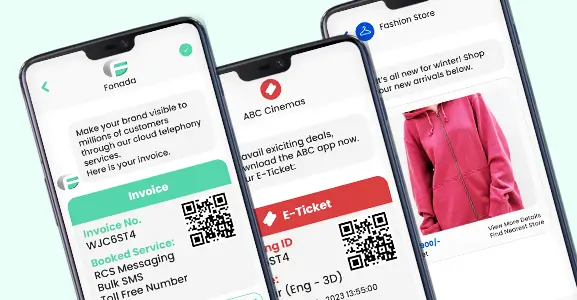Call scheduling in call centers refers to the process of organizing and planning when employees will handle incoming and outgoing calls. It involves creating a structured timetable or plan for assigning shifts to agents so that there’s adequate coverage throughout the day to manage customer inquiries, support requests, or outbound calls. This ensures enough people are available at different times to handle the volume of calls effectively.
The Significance And Applications Of Call Scheduling In Contact Centers
Call scheduling within a call center framework involves the strategic allocation of staff and resources to optimize customer service delivery. It’s a meticulous process aimed at synchronizing workforce availability with anticipated call volumes, ensuring that the right number of agents with the necessary skills are present at peak demand times.
This scheduling isn’t merely about setting work hours; it’s a fine-tuned balance between operational efficiency and customer satisfaction. Factors like historical call data, seasonal trends, and even external events impacting call volumes are considered. Various scheduling models exist, including fixed, flex, and rotating shifts, each tailored to meet specific business needs.
Moreover, call scheduling often incorporates sophisticated cloud telephony software or workforce management systems. These tools analyze historical data, agent performance, and forecasted call volumes to generate optimized schedules. They also factor in agent preferences and compliance with labor regulations to create a harmonious work environment.
Efficient call scheduling enhances productivity, reduces customer wait times, and maintains agent morale. By aligning staffing levels with demand patterns, call centers can improve service quality, ultimately leading to higher customer retention and loyalty. Additionally, it enables call centers to adapt swiftly to unforeseen fluctuations, ensuring continued operational excellence.
How Does Call Scheduling Work In The Call Center?
Call scheduling or call center scheduling in a call center is like a big puzzle where the goal is to have the right number of people available at the right times to handle incoming calls.
Here’s How It Typically Works:
-
Forecasting
Call centers use data analysis and past call patterns to predict when they’ll get the most calls. For example, Mondays might be busier than Fridays, or there might be a rush around lunchtime.
-
Staffing Needs
Based on these predictions, they figure out how many staff members they’ll need at different times of the day or week to handle the expected volume of calls.
-
Shifts And Schedules
Employees have shifts assigned to cover these busy periods. Some might work morning shifts, some afternoons, and some evenings. There could be full-time, part-time, or even on-call workers. With call center shift schedule, businesses can streamline their voice process and enhance their productivity.
-
Flexibility
Call centers often have systems for staff to swap shifts if needed. This helps in case someone gets sick or if there’s an unexpected rush of calls.
-
Technological Assistance
Advanced CPaaS solutions like IVR, Virtual Numbers, OBD, Auto Dialer, etc., help businesses to schedule their calls effectively. These solutions aid in tracking attendance, managing breaks, and ensuring adequate shift coverage
-
Adapting To Changes
Sometimes, the actual number of calls might differ from predictions. Call centers need to be flexible and adjust staffing on the fly. They might ask people to stay longer, come in earlier, or even call in extra help if things get really busy.
-
Balancing Workload And Rest
It’s important for call centers to balance the workload so that employees don’t get burnt out. They usually have rules about how many hours someone can work in a row and ensure they get breaks.
Overall, call scheduling in a call center is about predicting when they’ll be busiest, ensuring enough staff are scheduled to handle those times, and having systems to adjust if things don’t go as planned.
Call Scheduling: How To Optimize Sales Call Scheduling
Scheduling sales calls efficiently maximizes productivity and ensures you reach your prospects at the right time.
Here Are Steps To Help You Schedule Your Sales Calls Effectively:
Lead Generation Phase:
When a visitor completes a lead form on your website, it represents a valuable engagement that often stems from significant marketing efforts. To maximize this opportunity, avoid contacting them when they’re occupied. Instead, implement industry-recommended practices by offering two preferred callback time slots within the lead form itself. Integrate your form with advanced auto dialer solutions to precisely schedule calls based on these preferences.
During Conversation:
In the course of phone discussions, prospects or customers might request a follow-up call at a specific time and date. It’s crucial to have a structured process in place to honor these commitments. Businesses that reliably fulfill callback promises are perceived as trustworthy, resulting in better conversion rates.
CRM Integration For Call Scheduling:
Agents using CRM systems during customer interactions can seamlessly schedule follow-up calls within their contact center software or telephony solution. This integration streamlines the process and ensures effective scheduling.
Automated Retries With Auto Dialers:
In instances where contacts don’t answer during the initial dialing process, it’s essential to reschedule these calls for a later time. Employing an automated system for rescheduling retries optimizes efficiency and maximizes contact attempts.
Utilizing Call History For Scheduling:
Leverage your prospect’s call history to forecast optimal times for reaching out. By analyzing their previous interactions, you can pinpoint the moments when they are most likely to respond positively to calls.
Call Center Scheduling Best Practices And Use Cases
Optimizing call scheduling involves several best practices to enhance efficiency, improve customer service, and maximize agent productivity.
Here Are Some Strategies And Use Cases:
Forecasting And Planning:
Analyze historical data to predict call volume patterns based on factors like seasonality, day of the week, or time of day.
Real-Life Example:
A telecommunications company examines call data from the past year to anticipate spikes in call volume during promotional periods or after new product releases. They adjust staffing levels accordingly to handle increased demand.
Implementing Call Routing Technologies:
Use intelligent call routing systems to direct calls to the most appropriate agents based on skills, language, or customer needs.
Real-Life Example:
A healthcare call center uses intelligent routing to direct patient inquiries to agents specialized in specific medical fields. This ensures callers receive accurate and timely assistance.
Flexible Work Schedules And Shift Bidding:
Offer flexible scheduling options or shift bidding to accommodate agent preferences and optimize coverage during peak times.
Real-Life Example:
A customer service call center allows agents to bid on shifts based on their availability and preferences. This results in improved agent satisfaction and better coverage during busy periods.
Adopting Workforce Management Software:
Utilize workforce management tools to forecast call volumes, schedule agents, track performance metrics, and adjust staffing in real-time.
Real-Life Example:
A financial services call center integrates workforce management software that automatically adjusts staffing levels based on real-time call volume data. This ensures optimal agent allocation throughout the day.
Offering Multichannel Support And Self-Service Options:
Encourage customers to use self-service options or alternate channels (email, voice bot, chatbots, FAQs) to alleviate call volume during peak times.
Real-Life Example:
An e-commerce call center promotes self-service options for order tracking and FAQs on its website, reducing the number of calls related to these inquiries during high-demand periods.
Continuous Monitoring And Adjustments:
Regularly monitor call metrics and agent performance to identify bottlenecks or inefficiencies in scheduling and adjust strategies accordingly.
Real-Life Example:
A travel agency call center regularly reviews call data and agent performance metrics to identify areas needing improvement. They then adjust scheduling and training to address these issues and enhance service quality.
By implementing these best practices and learning from real-life examples, call centers can effectively optimize call scheduling, improve customer satisfaction, and enhance agent productivity.
How Does Call Scheduling Help Businesses Grow?
Call scheduling might seem like a simple organizational tool, but its impact on businesses is significant, contributing to smoother operations, improved customer relationships, and overall growth and success.
Call Scheduling Is Pivotal For Businesses In Several Ways:
Enhanced Efficiency
By scheduling calls, businesses optimize time management. This ensures that meetings, client calls, and internal discussions happen at predefined times, preventing overlaps or wasted time.
Improved Customer Service
Scheduled calls allow businesses to allocate time for customer inquiries or support, ensuring they have dedicated personnel to promptly address customer needs. This can lead to higher customer satisfaction and retention.
Global Reach
For international businesses, scheduling calls accommodates different time zones, enabling effective communication and collaboration across borders.
Organized Communication
Structured scheduling helps teams stay organized. Everyone knows when important discussions or updates will occur, reducing miscommunications or missed meetings.
Strategic Planning
Scheduling calls for planning sessions, strategy discussions, or brainstorming enables teams to focus on critical tasks, fostering innovation and problem-solving.
Increased Productivity
By having a set schedule, employees can plan their day effectively, reducing interruptions and increasing productivity during dedicated work hours.
Streamlined Operations
It aids in the smooth functioning of operations by ensuring that necessary stakeholders are available for decision-making, problem-solving, or discussions.
Optimized Resources
Scheduling calls helps in utilizing resources efficiently. It prevents the need for impromptu meetings that can disrupt workflows and allows for better resource allocation.
Business Growth
When teams can communicate effectively and efficiently, it often results in better decision-making, increased collaboration, and a more streamlined workflow. This, in turn, can contribute to business growth by fostering innovation, improving customer relations, and optimizing internal processes.
FAQs
To schedule a successful call for sales, determine availability, propose times, confirm with a prospect, set a clear agenda, and send a calendar invite with relevant details for effective communication.
Call scheduling involves the strategic allocation of resources (agents, tools, etc.) to handle incoming and outgoing calls at specific times based on predicted call volumes and agent availability.
It ensures the right number of agents are available during peak call times, reducing customer wait times and improving service quality.
- Historical Call Data
- Agent Availability
- Seasonal Trends
- Service Level Agreements (SLAs)
Yes, modern call center scheduling systems often allow real-time adjustments. Managers can reassign agents or change shifts based on immediate needs or unexpected spikes in call volume.
Yes, effective call scheduling ensures that enough agents are available during peak hours, reducing wait times for callers and minimizing the chances of calls being abandoned due to long wait times.

Dec 11, 2024
Top Contact Center Optimization Tools For 2024
“A thriving business knows how to fetch maximum output from limited resources by optimizing ca... Read More
Nov 13, 2024
What Is Brand Communication? CPaaS Role Explained
Did you ever wonder why some advertisements grab your attention instantly, while others do not? The... Read More
Nov 01, 2024
What Is Automated Messaging And How Does It Work?
Automated messaging or text automation empowers businesses and marketing professionals to connect wi... Read MoreLatest Updates
From Fonada
Industry Insights, Trends, Innovations, Updates, and Case Studies from Industry Experts
View
Customer
Reviews
Discover why our customers love us - read their authentic and heartfelt reviews!
View
Case
Studies
Explore real-life scenarios, offering analysis, and solutions to practical challenges
View
Convert Leads Into Sales With Fonada
Trusted CPaaS Solution Provider








